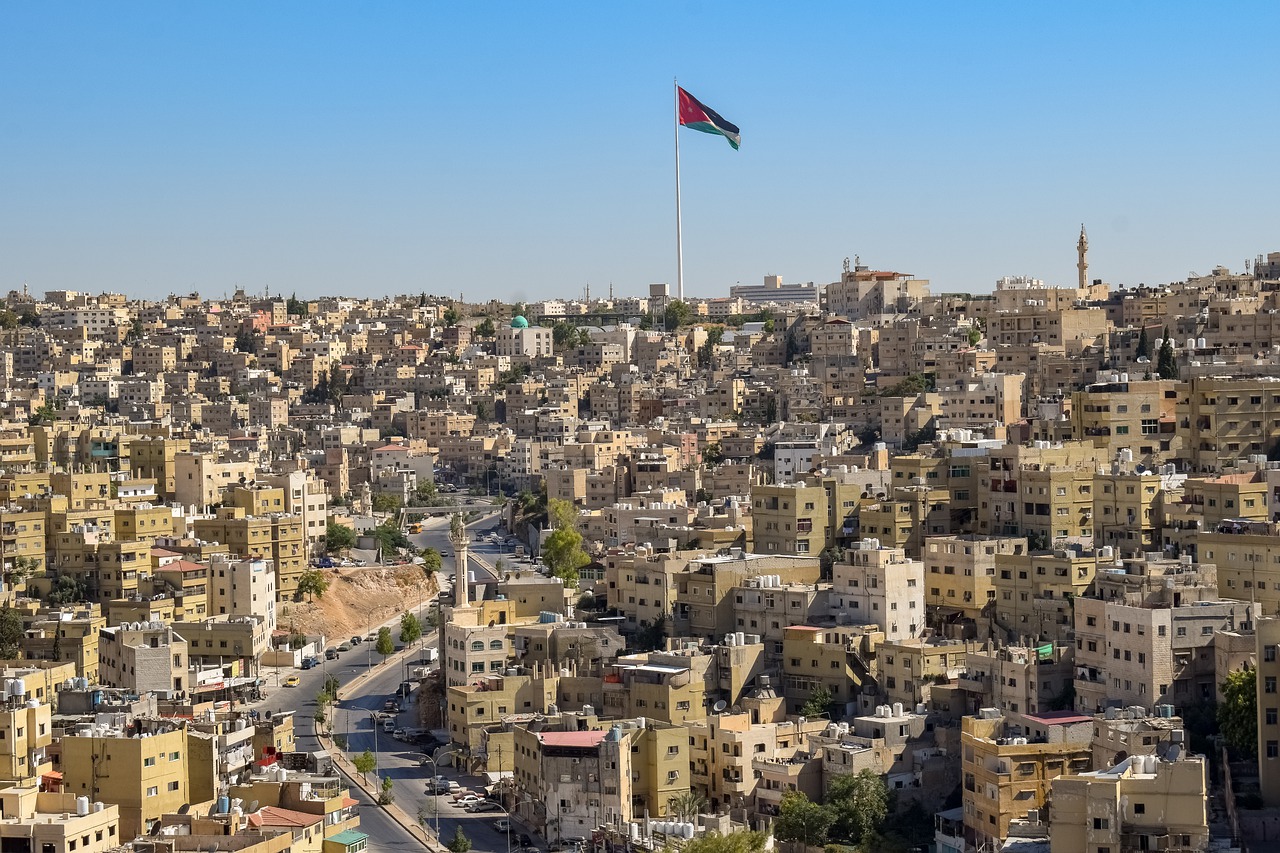The Government of Jordan’s Approach to Strengthening Trust (Through Data)

This is a guest post by Mays Abdel Aziz, of the Government of Jordan’s Ministry of Planning and International Cooperation (MOPIC).
Jordan has demonstrated a steadfast commitment to embracing digitization and digital transformation. This has been coupled with a strong commitment to transparency and data sharing, as exemplified by Jordan’s 2017 adoption of the Aid Flows Information System (AFIS) in partnership with Development Gateway, supported by UNDP and the EU. Based on the directives of His Majesty King Abdullah II, the Government of Jordan (GoJ) has understood from the start that transparency, communication, and participation are imperative to facilitate trust between citizens and government.
True government-citizen dialogue facilitates trust, whereas political narratives and rhetoric only go so far in achieving transparency. But where and how do we distinguish between true dialogue and rhetoric-based political narratives? The “holy grail” is information backed with data and real numbers that can speak with evidence, truths, and realities and provide measurable achievements; even valid political narratives lack this kind of evidence.
Committed to the use of data for improved transparency, we ask: If not through readily-accessible evidence, how can a government effectively communicate the rationale behind its difficult decisions to the public? For example, Jordan has opened its doors to the most vulnerable and provided refugees with shelter, services, and livelihood. GoJ has relied on evidence to explain the rationale for doing so to its people. Yet despite Jordan’s generosity and unwavering commitment to protecting the most vulnerable, this initiative continues to come at very high economic and political costs.
Ironically, in assessing the ‘costs’ and ‘burdens’ of hosting refugees, one might need to step away from the numbers – elements: like debt-to-GDP ratio, growth rates, and current account deficit. Instead, one should focus on issues of social cohesion and citizen-government trust. And as the COVID-19 pandemic continues, Jordan and King Abdullah II are again demonstrating that humanitarianism – treating both citizens and refugees with equal care – is essential for the health and wellbeing of the country. Jordan makes the health and safety of everyone a priority, including in refugee camps, where social distancing is unattainable. Al-Zaatari, the world’s largest Syrian refugee camp, continues to record zero actual or suspected cases.
Over the past 8+ years, Jordan has withstood challenge after challenge – a loud and clear testament to its resilience. Yet one ingredient that had long evaded Jordan, and is key to achieving successful reforms, qualitative governance, and a leap in growth, is trust. This lack of trust has created an urgent need to adequately communicate government decisions, especially the difficult ones. Further, aid-recipient states like Jordan are in a uniquely precarious position: accountable to both citizens and the international donor community. To strengthen public trust and mutual accountability, there is significant value in governments presenting real data to the public about citizens’ most pressing questions.
Fortunately, the GoJ had taken steps in support of transparency, accountability, and evidence-informed decision-making before the refugee crisis began. Jordan was the first Arab country to enact a Right to Information Law (2007) and join the Open Government Partnership (2011); GoJ also launched an Open Data Policy in 2017. Just as important as establishing the policies, the GoJ has taken concrete steps to ensure implementation of these laws, policies, and commitments. This commitment is exemplified by the adoption and development of the AFIS.
Jordan’s commitment to the AFIS largely stems from the question: What better way can government(s) build trust than presenting real data to address the public’s most pressing questions? Citizens want answers to questions like, Where is the foreign assistance coming from? Where is it going? Are the pledges and commitments made met on the ground? If so, where and how are they channeled? By nature, Official Development Assistance (ODA) flows are not meant to go into a black box.
During this initial phase, the AFIS has been successful. To date, the platform has been populated with three years’ worth of contracted assistance data; streamlined MoPIC reporting processes; and enabled the generation of customizable reports and charts by donor, country, and sector (among others). Yet as with any meaningful endeavor, much remains to be done:
- First, we are seeking more engagement within MoPIC and with development partners to ensure data entry becomes a sustainable, quality-controlled process.
- Second, additional efforts are underway to clarify timeframes and data needs for forward-looking ODA pledges.
- Third, AFIS’s data definitions must be updated to align with the 2019 OECD-DAC changes to ODA reporting.
- Fourth, we seek to understand and track how ODA and private financial flows will be transformed by COVID-19 ramifications.
Jordan’s development assistance portfolio continues to expand as we confront new crises such as COVID-19 and as ODA continues to evolve. We must also remain diligent and ready to track and understand the ever-changing nature of financial flows. (For example, the AFIS has the potential to track projects that allocate financial resources to address a major event such as COVID-19, and the ability to display reports, charts, and maps with COVID-19 projects.). For example, private financing is merging as both a powerful tool to combat the current health crisis, and as an instigator of economic downturns across the board. Fortunately, DAC reporting mechanisms are already starting to capture private financial flows as part of ODA reporting. With initiatives like this, we are setting a precedent for a healthier post-Covid financial landscape – one driven by an upsurge in investments and sustainable development financing.
Finally, as the world continues to prioritize evidence-informed decision-making and face new challenges, AFIS’s capabilities will become even more relevant, useful, and used. In the spirit of resilience and sustainability, we must continue to embrace change, build trust, and strengthen mutual accountability. To build on existing momentum, we will need to embrace newly-emerging concepts in ODA flows, particularly when it comes to the new financial, humanitarian, and development landscapes likely to emerge in a post-Covid world order with even better levels of trust, transparency, and accountability between GoJ, its citizens, and the international donor community.
Photo credit: Dimitris Vetsikas
Share This Post
Related from our library

From Standardization to Specificity: Localizing Multi-Country Research
Multi-country research must balance consistency with local realities. While standardization allows reliable comparisons and generalizable insights, local context shapes outcomes. This blog explores how programs can strike that balance effectively.

Economic Toll of Tobacco-Related Diseases in Kenya: New Research Findings
Development Gateway: An IREX Venture (DG) is pleased to announce the publication of a research manuscript on the Economic Costs of Tobacco-Related Illnesses in Kenya. This research was carried out as part of the Tobacco Control Data Initiative (TCDI) activities in Kenya and is part of a broader report on Morbidity and Mortality from Tobacco Use in Kenya.

Unlocking Africa’s Agricultural Potential: Introducing the Soil Nutrient Roadmap
For over a decade, Development Gateway: An IREX Venture (DG) has been at the forefront of digital agriculture, leveraging agricultural data to support input monitoring, value chain analysis, and farmer-centric governance models. With funding from the Gates Foundation, DG is launching the Soil Nutrient Roadmap (SNR), a cutting-edge initiative using geospatial data to estimate current and future soil and crop nutrient requirements.